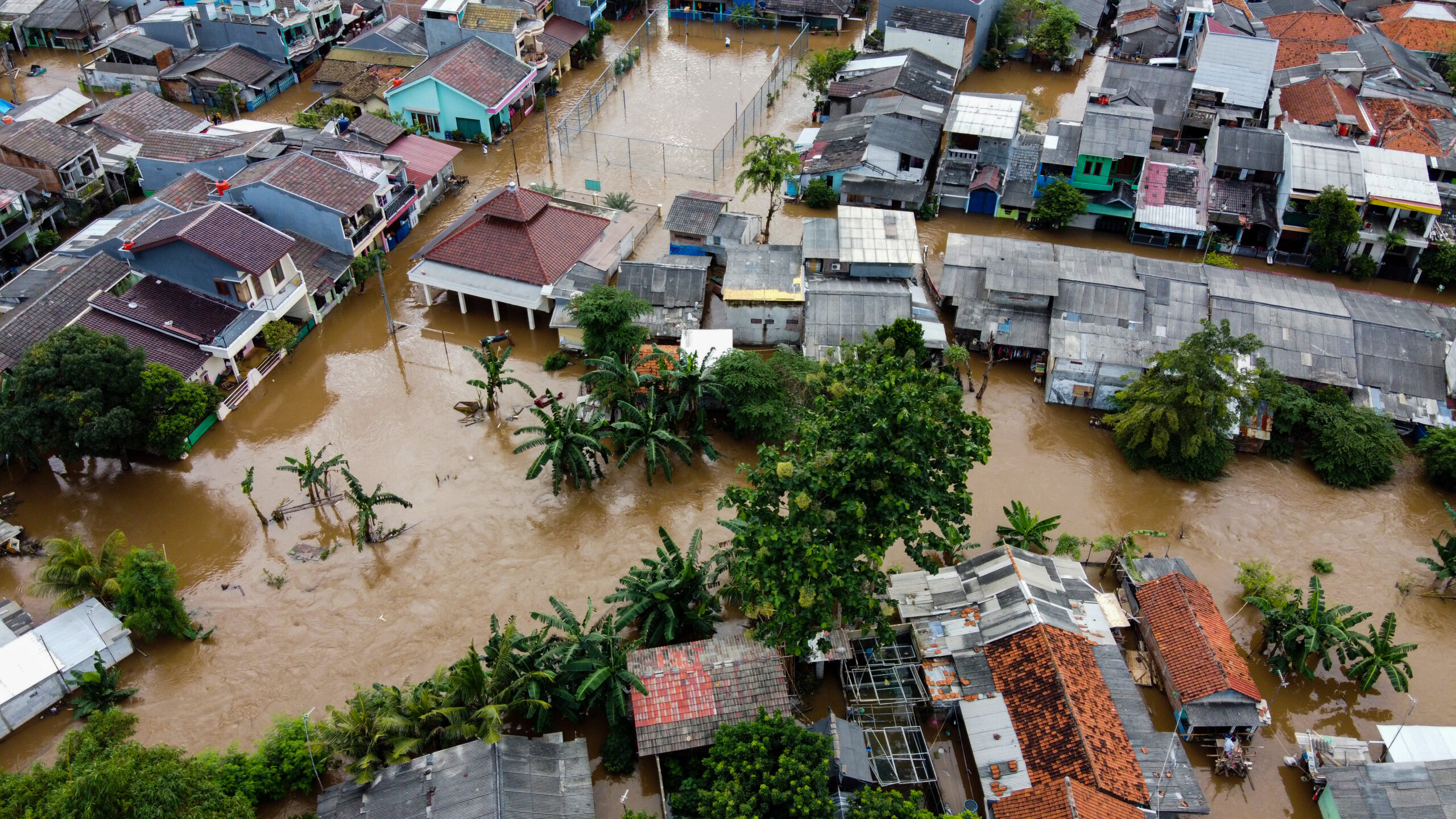Sophie Saint Thomas has been riding out hurricanes in the U.S. Virgin Islands since she was a baby. She swears she remembers the high winds of Hurricane Hugo, which hit when she was less than two years old in 1989. After Hurricane Marilyn struck in 1995, she and her family lived without electricity and reliably clean drinking water for months. Now an adult, Saint Thomas has helped friends and family through numerous hurricanes and worked with local organizations in the islands after storms.
After storms, she says, “The biggest problem is lack of access to medication.” People run out of medicines, and drugs like insulin that require cold storage may be impossible to store properly without electricity. And in some places, the “lack of access to health care can go from hard to impossible,” she adds.
When we think of the dangers of a storm, we usually think about being swept away by flood waters, powerful winds making our homes unsafe or uninhabitable, and temporary losses of electricity that cut off easy access to food and water. However, research into tropical storms in the United States finds that nearly half of fatalities during natural disasters are caused by secondary effects—one of which is illness.1
After the hurricane passes, it leaves behind conditions that raise your risk of health issues, including vector-borne pathogens carried by mosquitoes.2 The 2024 hurricane season has seen Puerto Rico declare a public health emergency for dengue fever, while West Nile cases are rising in the contiguous United States.3,4,5
Here’s what experts say you need to watch out for in the aftermath of a hurricane to avoid serious injuries or illness.
Illness After a Hurricane
Gusting wind has the power to carry microbes to new and vulnerable locations; swelling waves can create contamination from runoff and septic tanks; still water may provide a fertile breeding ground for disease-carrying mosquitoes; and overrun health care settings can make hospital-acquired infections run rampant.6,7 Knowing the risk of different diseases can help you stay healthy in a hurricane’s aftermath. Here’s what to look out for:
Bacteria in the Water
The Centers for Disease Control (CDC) warns of a bacterial infection, leptospirosis, that can damage your kidneys and liver and make it difficult to breathe.8 The bacteria can live in bodies of water or even soil that contains animal urine or feces. Floods leave people particularly susceptible because the flowing waters spread the bacteria. For example, in August 2024, Tropical Storm Debby was responsible for 6.6 million gallons of spilled sewage throughout Florida’s Manatee and Sarasota Counties.9
In the weeks after Hurricane Ian hit the west coast of Florida at the end of September 2022, the Florida Department of Health reported 74 cases of people being infected with a flesh-eating bacteria, Vibrio vulnificus; nearly half of those cases were from Lee County, where the storm hit hardest.10
To prevent bacterial infection:
- Check water status with local authorities before swimming in oceans or rivers.
- Avoid standing bodies of water.
- If you must wade out, wear protective rubber boots.
- Cover cuts or open wounds with sterile bandages.
- Boil any water before drinking it.
- Dogs and cats can be susceptible, too, so it’s a good idea to supervise animals and keep them away from standing water.
Viruses Carried by Mosquitoes
Areas that experience heavy rainfall can become a fertile breeding ground for mosquitoes, according to Nancy Mitchell, RN. She explains that mosquitoes “tend to mass breed in standing water from old tanks and stagnant potholes.” The spread of vector-borne diseases typically starts to tick up two weeks after a hurricane has subsided and can continue for several weeks following the storm.11
Outbreaks of dengue, West Nile virus, chikungunya, and Zika have all been tied to severe storms. In the first half of 2024, there were 9.7 million reported cases of dengue in the Americas—more than twice the number as all of last year—prompting the CDC to issue a warning.12,13 At this time, no cases have spread in the contiguous United States; however, more than 2,500 people have contracted the disease in Puerto Rico.14
In the United States, West Nile virus is the leading cause of mosquito-born contagion.15 In 2024 so far, the CDC cites 216 total cases, with the highest number reported in Texas following Hurricane Beryl.16,17
Neither chikungunya nor Zika have been seen in the United States or its territories since 2019, but both remain a risk abroad.18
There is no cure for any of these viruses and all can be serious and sometimes fatal. The best treatment is prevention. To reduce your risk of mosquito-borne diseases:
- Eliminate standing water on your property.
- Wear long-sleeve shirts and pants.
- Explore your options for insect repellents. Read Is Bug Spray Safe? to find the best solution for you.
There is a vaccine for dengue fever, DENGVAXIA, that is considered safe and effective by the CDC. However, it’s only recommended for children ages 9 through 16 with a history of dengue infection. Plus, due to a manufacturing discontinuation, it’s only available in areas where the disease is currently endemic, like Puerto Rico.19 Known side effects include headache, cramping, and pain at the injection site. In rare instances, persistent vomiting, bleeding in the mouth, and severe stomach pain have been reported.20
Hurricanes and Other Health Issues
Infected Wounds
When you’re cleaning up debris or surveying local damage, you may be susceptible to infections, such as tetanus, via cuts and scrapes, which can cause serious illness after a hurricane.21 “Wounds from hurricanes can involve contaminated metals, wood, and glass,” says Mitchell. “If left untreated, these injuries could develop into severe gangrenous infections.”
To lower your risk of infection:
- Wear protective clothing such as rubber boots and gloves when cleaning.22
- Make sure your tetanus vaccination is up to date, and seek medical attention if there’s a chance you might have been exposed.
Generator Injuries
Another source of injuries after a storm arises due to the use of a generator. Without power, impacted households resort to alternative sources of energy, which themselves can be dangerous.
“I had a childhood friend who was burned with third-degree burns after her gas generator exploded while trying to light it, as there was no electricity,” says Saint Thomas.
Generators are a crucial source of energy when outages are widespread, but using them incorrectly can be risky. In addition to explosions, the devices can cause carbon monoxide poisoning.
“Each hurricane season, there are deaths reported from carbon monoxide poisoning related to power outages,” says Kelly Johnson-Arbor, MD, medical toxicologist and Co-Medical Director of the National Capital Poison Center.23 Carbon monoxide causes nausea and vomiting, and it can be fatal. Poisoning can happen so quickly that the exposed person becomes unconscious before recognizing any symptoms.
To avoid carbon monoxide poisoning when using a generator:
- Have battery-powered carbon monoxide detectors within 10 feet of any sleeping areas.
- Do not operate generators in enclosed areas, even garages.
- Seek guidance from Poison Control at poison.org or by calling 1-800-222-1222 if you suspect poisoning.
Heat and Sun
Hurricane season runs from June 1 to November 30 in the Atlantic, meaning storms tend to hit when heat and sunlight are especially powerful. If the electricity goes out and you don’t have reliable air conditioning, you’re at risk for heat exhaustion, so be careful about engaging in strenuous activity.
Certain medications can also make you more susceptible to heatstroke or burns and rashes from the sun.
To avoid heat exhaustion or burns:
- Stay out of the sun during the hottest parts of the day.
- Cover your skin and wear a hat to shade your face.
- Before undertaking physical activity or cleanup, ensure you have plenty of clean water to maintain hydration.
Also make sure your medications are in a dry place away from direct heat or sunlight.
Mental Health
It’s not just infections and injuries that can cause illness after a hurricane, living through a natural disaster takes a serious toll on your mental health. You may want to reach out to a therapist or other mental health professional once you’re safe to manage any stress, anxiety, post-traumatic stress disorder, or grief you’re experiencing.






